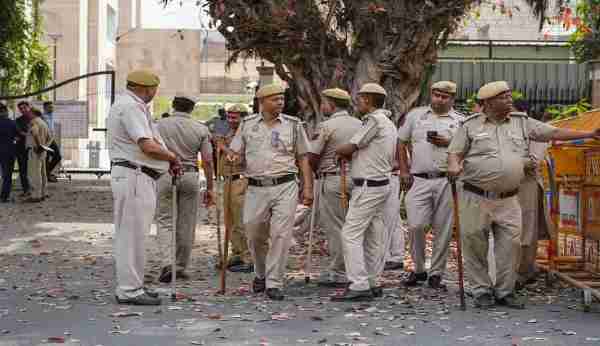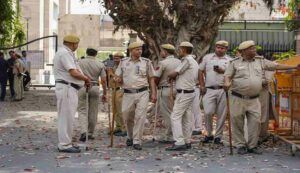
With voting set on February 5, Delhi Police are keeping a close eye on things to make sure the forthcoming Assembly election in the nation’s capital runs well. For this reason, the police have implemented a number of security precautions.

With CCTV cameras placed in strategic positions, police have stepped up their vigilance at interstate border checks.
According to the police, their first goal is swiftly clamping down on illegal activity, with a focus on stopping the smuggling of alcohol and combating bootlegging enterprises.
In order to keep the calm during the elections, the police will also keep an eye on criminal elements, execute Non-Bailable Warrants (NBWs), and capture proclaimed offenders and wanted criminals. It has improved the exchange of intelligence with the command room at Headquarters. The Central Armed Police Forces (CAPFs) and the police will collaborate.
With the Election Commission confirming that the national capital would hold elections on February 5 and results will be released on February 8, the Delhi election fight gained speed on Tuesday. All of the main candidates, including the governing AAP, BJP, and Congress, declared themselves prepared and discussed their strategies for winning over votes.
On February 5, Delhi will have elections, and on February 8, the results will be tallied.
Nominations must be submitted by January 17. The nominations will be examined on January 18. However, January 20 is the deadline for withdrawing one’s candidacy.
The Model Code of Conduct (MCC) has been implemented in the nation’s capital since the election dates were announced, and it will be in effect until the election process is over.
There were 1,55,24,858 registered voters in the National Capital Territory (NCT) of Delhi as per the final voter list for the 2025 Delhi Assembly elections, which was released on January 6. This is a net gain of 1.09 percent.
The Congress, which ruled Delhi for 15 years in a row, has lost both of the most recent assembly elections and has not been able to secure any seats. In contrast, the BJP only received eight seats in the 2020 assembly elections, while the AAP won 62 of 70 seats.